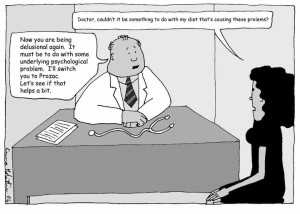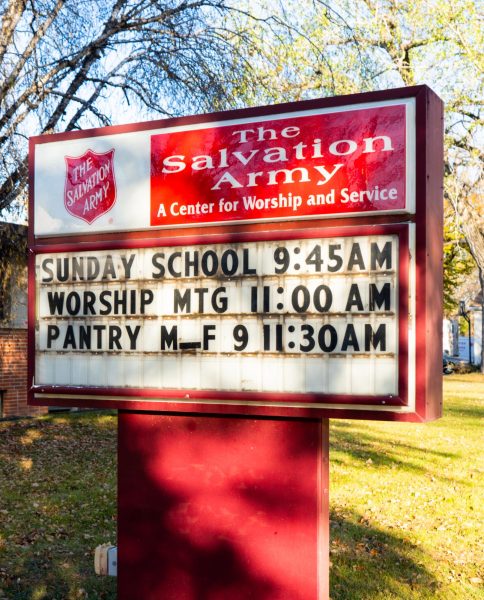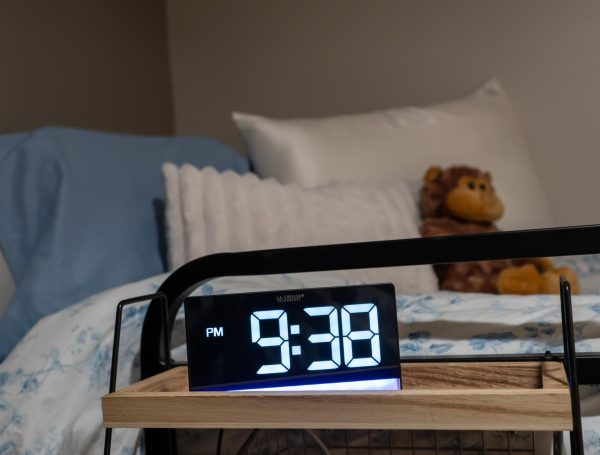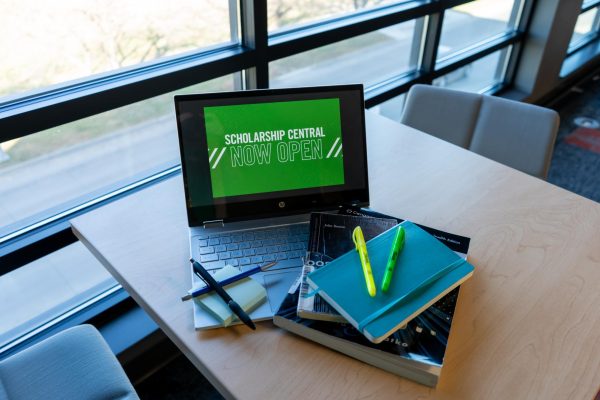Bookstores cash in on students
Overpriced books are an unfortunate part of UND experience.
If there is one thing I absolutely can’t stand more than anything else about college, it’s buying textbooks.
Last semester, I purchased all the books I needed for my classes at the official UND bookstore. I utilized the online ordering feature and simply went in to pick them up — that was the easy part. The amount of money I had to drop on these bundles of inked paper, however, was appalling.
I think we can all agree that buying books is just part of life as a student, but at the same time, some of the ways both textbook companies and the bookstores make their money is crazy.
For example, I purchased my Applied Calculus textbook at the bookstore because I was told there was an access code in it that would be needed to complete online homework — no big deal.
Here’s where I have a problem: At the UND bookstore, you can buy the loose-leaf textbook and the online access code as a package for $161.75. They don’t offer the code by itself, even though on the actual WebAssign website, they suggest the code should cost $75.
The first time I realized this was a scam is when I found out the full textbook is available online via the access code and is never really utilized in assignments of any kind anyway. It obviously costs money to print out the pages of the book, but at least offer the option of buying the code with the digital book without the loose-leaf version.
There could be some benefits of having a paper copy of the book, but I used the online version for studying and practice questions. Having the paper copy is nothing more than a waste of paper, a binder and money.
My biggest issue with the process is that when I went into the bookstore to try and sell back this specific book, they told me, “We don’t buy back books that come with codes, or books that are (unbound).” Then why the hell does the school only sell the code plus book combo? If you don’t buy the books back, and the code costs almost $100 less than the combo pack, why would you not make it available by itself?
I have the answer: Profit.
An interesting point a professor made to one of my classes on the first day of this semester verified this. He explained that the UND bookstore runs on the concept of monopolizing the textbook sales, which is why the UND bookstore is the only place that is invited to Welcome Weekend, the only store allowed to openly advertise on campus, and the only place where you can use federal financial aid to pay for books. He finished his talk by saying, “Don’t ever buy textbooks from the bookstore.”
The sad fact of the situation is that the bookstore is a business, and it’s run like a business. They don’t want something they know won’t sell by itself. (In this case that’s the textbook without the code). It’s a very clever — though somewhat dishonest — approach to serving the students of this college community.
Imagine going to the pharmacy to get some certain medication — let’s say, Pill A — you absolutely need to treat some problem — Ailment X. Pill A treats Ailment X very well, so that’s what you go in to purchase. When you arrive, they tell you that people who buy Pill A also often buy Pill B, which also treats Ailment X but that is unnecessary for recovery in your particular situation. You say, “No, thank you. Pill A will work just fine,” before you learn that they’ve decided to only sell Pill A in a package with Pill B, and, of course, there’s an additional cost.
Does that sound fair? Sure, they have every right to do so, but you’d think a local clinic, an organization that functions not only for profit but to help the community at large, would do whatever they can to make things easier for the people they serve.
I know these places need to make money or they can’t keep functioning, but you won’t convince me that the additional $60 they squeeze out of each person is all that stands between them and banruptcy.
This is how I see the bookstores. Being a part of the campus community must not be enough to incentivise them to do what they can to make their students’ lives as easy as possible.
Micah Dewey is a staff writer for The Dakota Student. He can be reached at [email protected].







